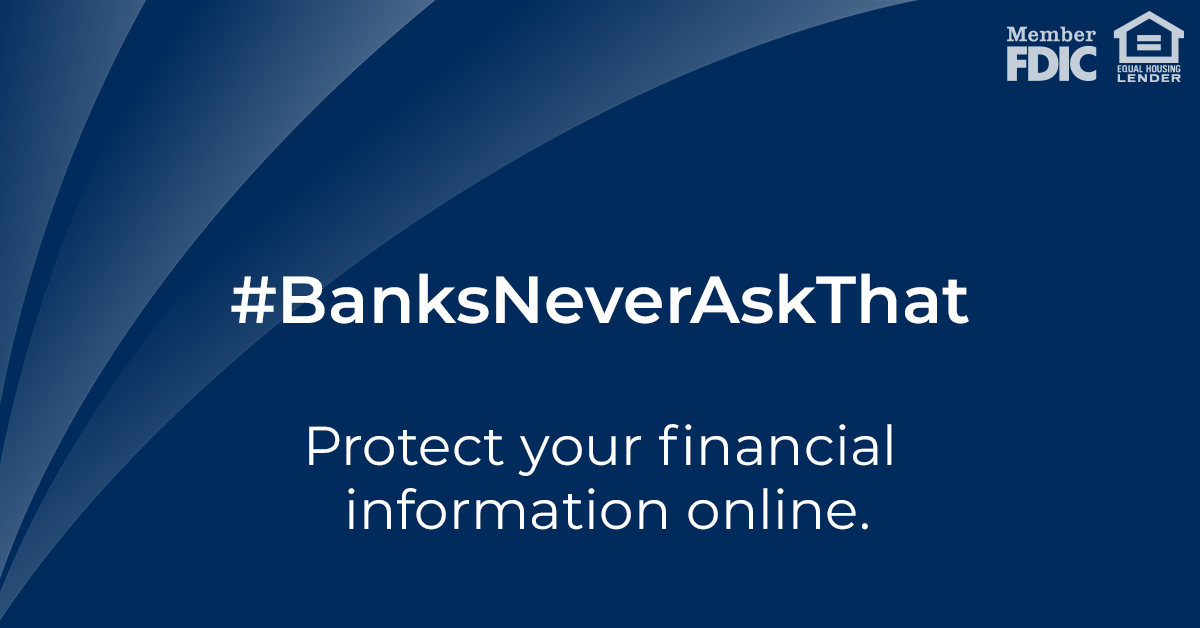
Stop! Thief!
By now, we’re so used to living our lives online it’s easy to take some things for granted. For instance, just like in real life, there are some bad people out there who want to take your money. The good news: there are a few simple things you can do to stop them.
#banksneveraskthat
Wondering whether a request for information from your bank is a scam? Glad you asked. Because there are things no bank would ever ask in an e-mail or text message: your account number, social security number, name, address or password. They will only ask you to provide this information to verify your identity when you call them directly. Think twice before answering with any of your personal information.
Trust Your Instincts About Who You Can Trust
If an e-mail seems suspicious, it probably is. Don’t open it or click on links in an email from someone you don’t know. Remember, the IRS, banks, and credit card providers will NOT ask for personal information in an email or by calling you. If in doubt, hit delete.
Keep It To Yourself
We all like to show off a little on social media. But don’t overshare. That awesome vacation you’re taking? Post about it when you get back, don’t tell the world when you’re leaving. Pic of a check with your routing or account number on it? Keep it in the vault. And be sure you check your privacy settings so you know who sees your posts.
Do I Know You?
Scam internet retailers exist. But it’s not hard to make it a lot harder on them. Whenever you can, shop with companies you know. Be suspicious of unbelievably low prices compared to other vendors. If you stick with stores you know it’s a lot less likely your credit card info will end up in the hands of a thief.
A Final Word
Passwords. You’ve probably heard this a thousand times, but they really do matter. Make sure yours are strong. Don’t use the same one for every account. Change them regularly. Don’t make them easy to guess. And don’t share them with anyone. There, now you’ve heard this a thousand and one times!


